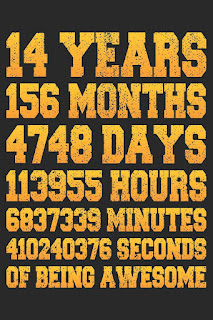Saluting the Fallen

Anyone that has been following the virtual worlds industry has noticed the growing number of virtual world platforms that have closed recently. Now this is to be expected given the amount of virtual world platforms that popped up over night during the 2007-2008 virtual worlds gold rush, but it still saddens me to see these players leave the stage.
I have witnessed that the closing of a virtual world platform is more than a company shutting down, people getting laid off, and investors losing on their return. It is the Apocalypse of a digital eco-system. Worlds are demolished, user creations are destroyed, relationships with digital family and friends are lost, and all at the literal flip of a switch. So I am taking a moment on my birthday to salute those virtual world platforms that have recently fallen:
Metaplace - Raph Koster's virtual world open platform announced it was closing earlier this year. This really surprises me as I found Metaplace's world creation tools to be super intuitive and thought this ease of use with no need for additional plugin (worked in Flash) would really help it grow. Raph states, "it has become apparent that Metaplace as a consumer UGC service is not gaining enough traction to be a viable product." Video below is of Metaplace when first released.
Forterra:
Forterra Systems, Inc. and their Olive platform was purchased by SAIC, government contractor to groups like the Department of Defense and Homeland Security. Forterra was a 3D software company headquartered in San Mateo,California that produced private and secure MMO and virtual worlds for corporate, government, defense, medical and educational clients.
There.com - There.com was a 3D online virtual world founded in the spring of 1998. On March 9th, 2010, There.com shut its doors to the public. Michael Wilson, the CEO of Makena Technologies announced that the game was mainly closed because it couldn't financially upkeep itself.
Project Wonderland - a 100% Java open source toolkit for creating collaborative 3D virtual worlds. Project Wonderland had been funded by Sun Microsystems since its early development. On January 27th, 2010, Sun Microsystems was acquired by Oracle who decided to cease funding. Project Wonderland is now continuing as an independent community-supported open-source project named Open Wonderland.
Vivaty - Now this announcement is one that hits real close to the virtual heart. Two years to the day after I started this blog and covered the Vivaty platform in my first post, Vivaty announced they will be closing after a 'Shut-down party' April 16th. CTO Jay Weber states, "Our business model was to earn money through Vivabux sales, but that has never come close to covering our costs. We tried for months to find a bigger partner that would support the site, but that didn’t work out."
Even though to the end user Vivaty was a platform like all the others that provided 3D virtual rooms that users could decorate, inhabit with customizable avatars, and invite friends to for chat/activities, it had such a bright future and foundation for truly growing the 3D web like no other. It was a virtual world platform built by 3D web leaders, developed on open standards, its 3D scenes could be embedded in Facebook, AOL Instant Messenger, blogs and websites, it had a great developer tool, and
Even though to the end user Vivaty was a platform like all the others that provided 3D virtual rooms that users could decorate, inhabit with customizable avatars, and invite friends to for chat/activities, it had such a bright future and foundation for truly growing the 3D web like no other. It was a virtual world platform built by 3D web leaders, developed on open standards, its 3D scenes could be embedded in Facebook, AOL Instant Messenger, blogs and websites, it had a great developer tool, and
successfully implemented X3D in Flash. Any user with the Vivaty player could visit any X3D or VRML scenes on the web. I had links from my Vivaty space that took users right into web3D applications of my own design. This was what made Vivaty different from all the others.
Unfortunately, the direction they decided to take made them no different from more established virtual worlds. Perhaps there is a lesson here to be learned by future virtual world product managers. CEO Keith McCurdy told VentureBeat that the company is in the final stages of being acquired, which will send its IP elsewhere to be used as the foundation for a new project. "I think the acquisition proves the technology is best of breed and desirable."
Unfortunately, the direction they decided to take made them no different from more established virtual worlds. Perhaps there is a lesson here to be learned by future virtual world product managers. CEO Keith McCurdy told VentureBeat that the company is in the final stages of being acquired, which will send its IP elsewhere to be used as the foundation for a new project. "I think the acquisition proves the technology is best of breed and desirable."
Thanks Vivaty for all the great times and I wish all from Vivaty the best in their future pursuits.


Comments